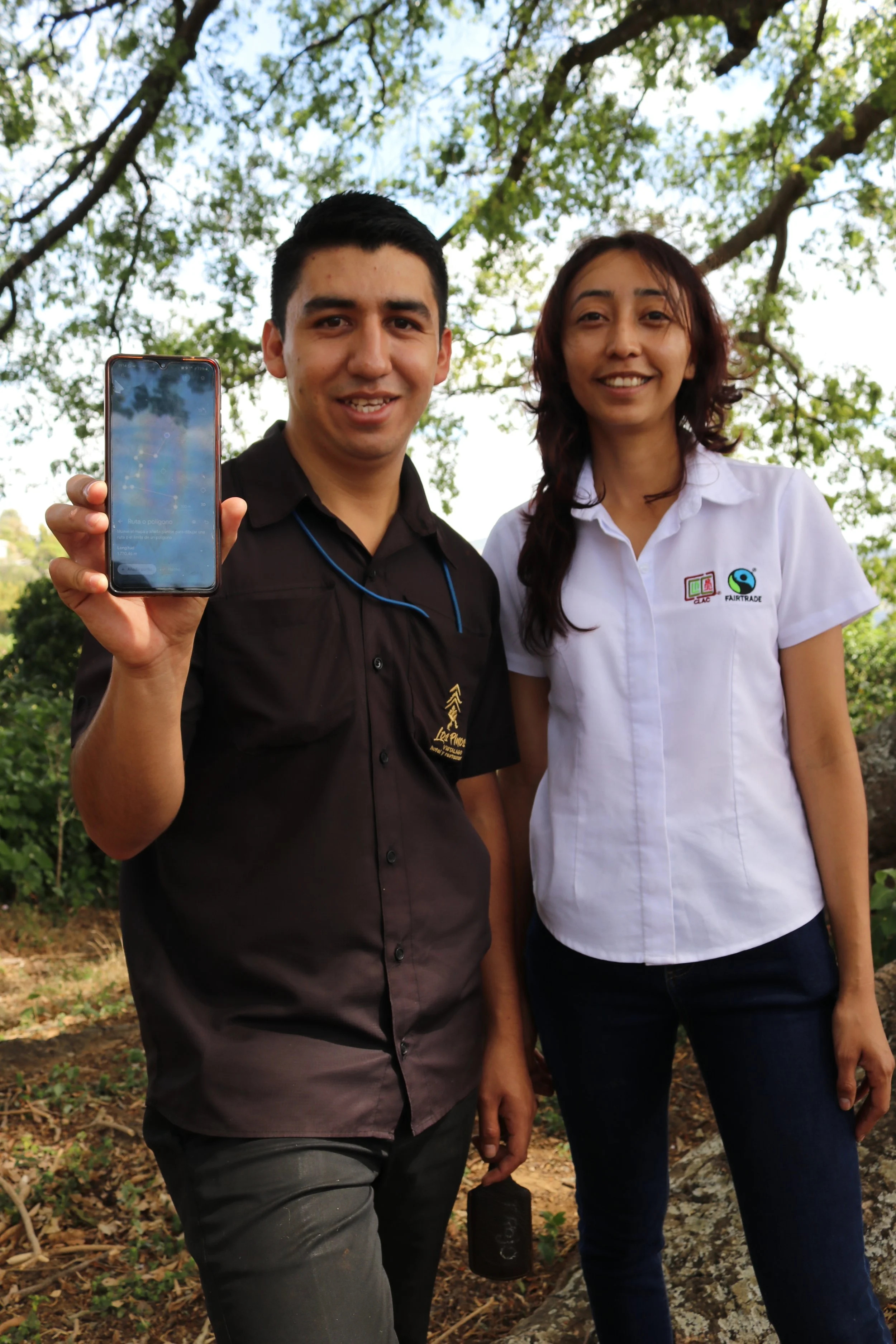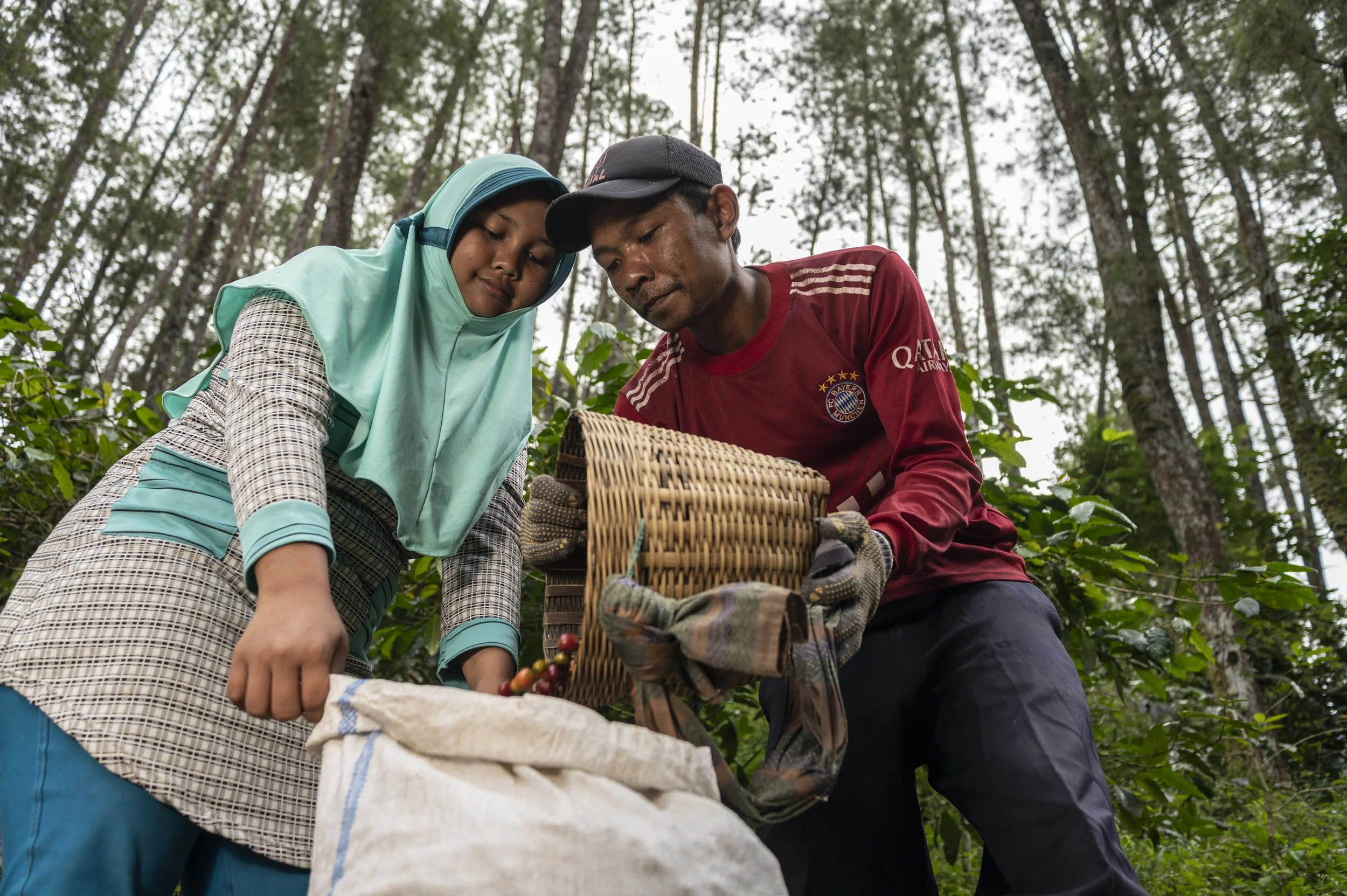Meet the 2025 Non-Profit SCA Sustainability Award Winner: Fairtrade International
LESLY NASSILA spoke with COLLEEN ANUNU, Senior Advisor for Coffee at Fairtrade International, the non-profit winner of the Specialty Coffee Association’s (SCA’s) 2025 Sustainability Awards. Lesly and Colleen discussed how the organization places farmers at the center of its model—empowering them through decision-making power and control over how Fairtrade premiums are used. While Fairtrade is best known for providing coffee smallholders with an economic safety net, it also supports their transition toward deforestation-free and more sustainable agriculture through an EUDR-focused partnership with Satelligence. Anunu emphasizes that relational value chains and pricing premiums are not mutually exclusive, reminding the coffee industry that both can coexist to build a more equitable and resilient sector.
This interview has been edited for length and clarity.
Lesly Nassila (LN): Could you introduce Fairtrade International's mission and vision?
Colleen Anunu (CA): The mission of Fairtrade is to promote fair conditions for international trade and create a more equitable economic system by connecting small-scale producers and workers with consumers. Fairtrade is a voluntary third-party certification scheme. It's one of the most recognized and trusted sustainability labels, known for advancing economic empowerment and environmental and social sustainability. The coffee sector is built on a legacy of colonialism, and Fairtrade seeks to rebalance that power dynamic through production and trading standards, that give producers a stronger voice and economic safety nets, especially in times of crisis. Fairtrade works with around 600 smallholder coffee producer organizations, representing roughly 750,000 coffee farmers globally.
Claudia Vasquez, responsible for the reforestation project of the NORANDINO agricultural cooperative in Peru.
LN: Thank you so much, Colleen. How do you define sustainability and incorporate it into your work?
CA: I will split my answer into the three classic pillars of sustainability.
From an environmental standpoint, Fairtrade’s production standards promote good agricultural practices—healthy soils, water conservation, and integrated pest management. In 2022, Fairtrade formally adopted a sustainable agriculture policy of agroecology, which aligns with our commitment to producer empowerment and local decision-making. Agroecology’s bottom-up approach allows farmers to define what works in their own contexts and to develop locally adapted, resilient farming systems. Additionally, we are one of the third-party certifications that ties economic incentives to organic production, thus supporting the transition to sustainable agriculture.
From a social perspective, Fairtrade standards require fair labor practices including wages and formal contracts, and participation is limited to smallholder cooperatives under the Fairtrade Coffee Standard. We see smallholder cooperatives as critical to advancing democracy, participation, and negotiating power in the coffee sector.
Economically, Fairtrade ensures stability through its minimum price and premium mandate within the trader standard. When the market is low, the Fairtrade minimum price provides a safety net for over 750,000 producers in the Fairtrade system. Producer organizations receive a base price, which is either the Fairtrade minimum price of US$1.80/lb, or the prevailing market price if that is higher. On top of this base price there is a $0.20/lb Fairtrade premium, which is invested democratically by cooperatives. Certified organic coffee received an additional premium of $0.40/lb on top of the base price.
Another way that we support economic sustainability is through a really rich history of advocacy around living income and sustainable livelihoods. We are now reviewing how these concepts of living income and living income reference prices can better align with our pricing mechanisms.
Adhany Ilham plants the avocado seeds at a coffee plantation in Kayumas village, Stibondo, East Java, Indonesia. As members of the cooperative, coffee farmers have access to education in agroforestry.
Felix Menjivar (technician for EUDR geolocation data) and Claudia Jimenes (CLAC Country Manager for El Salvador) show how geolocation data collection works.
LN: Many see Fairtrade as socially focused, yet you are also advancing environmental priorities. In the context of new regulations like the EUDR, what challenges do you see for small-scale farmers? Your collaboration with Satelligence is one response—could you briefly describe this partnership?
CA: Even with the proposed one-year delay, we continue supporting producers to prepare for EUDR compliance within their value chains.
One of the main burdens has been the collection of geolocation data. Even though the technology is available, organizing millions of smallholder farmers, especially in a value chain as fragmented as the coffee one, is challenging. The significant cost and administrative burdens that these types of regulations involve add another layer of complexity. Through our partnership with Satelligence, we fund workshops for farmer representatives, cooperative leaders, and technical experts on collecting geolocation data, assessing risks, and creating mitigation plans. We’re trying to lessen the burden of compliance through support and through some centralized approaches to data collection that reduce technical complexity. Deforestation has such strong linkages to poverty that it needs to be a multi-pronged approach toward resolving. We need to go beyond just complying with the law, by actually enabling those who are the most vulnerable in the supply chain to not only comply with the law, but also achieving more dignified incomes through these pricing mechanisms that we have. Within this partnership with Satelligence, what's really important for Fairtrade is that producers own the data; the mapping visualizations and risk reports are shared back with producers. Through the partnership, they’re able to use risk reports in a way that fits their localized approaches to mitigation. This contrasts with many instances of compliance-related data sharing, where producers don’t always get actionable feedback.
LN: Thank you so much, Colleen. My next question is about the voice of farmers in governance. Farmers hold 50% of decision-making power in your General Assembly. What concrete decisions or outcomes illustrate the value of this model?
CA: Producers hold 50% of decision-making power in the General Assembly, ensuring their voices shape key decisions—from budgets to board appointments. Producer representatives also serve on committees alongside technical experts and market actors. Another important way to think through the influence and decision-making power of producers within the system really comes to the Fairtrade premium use. Cooperatives have full agency on how they make use of the premium. We know that the majority of premium funds are spent as second payments to farmers, local infrastructure, capacity building for cooperatives like technical assistance to improve quality and productivity. At a cooperative in Aceh, Indonesia they also invested a small amount of money for a community cardio workout trainings for women coffee producers. It may sound surprising, but it's a core empowerment mechanism for women in that community that don't have spaces to support social connectivity. Premium use is not for anyone else to decide, but those cooperatives, which is a very valuable aspect of this certification.
LN: The coffee sector faces major challenges. What recent practices or shifts make you hopeful?
CA: It’s hard to feel hopeful given current market dynamics. The market remains decoupled from the actual cost of production, even as there’s growing interest across the coffee industry in supporting prices that cover the true cost of sustainable production. Concepts like living income and dignified livelihoods are gaining traction—but where is the broad, consistent investment in coffee pricing to match that rhetoric?
In 2025, we’re seeing record highs for Free on Board prices (the price paid for coffee at the point of export, known as FOB). While they're not farm gate prices (the price paid to a farmer), they do signal that at last we're starting to see the value of the coffee that is being grown. Still, there’s a continuing need for Fairtrade in this high market environment, because these market conditions won’t last forever. I find some hope in the fact that we're finally raising prices at the retail level—margins downstream are tightening, which could indicate a rebalancing of the inequitable distribution of value along the supply chain. However, this shift is being driven primarily by market forces, not by long-term, sustainable mechanisms.
On one hand, I'm hopeful because consumers are starting to pay more and the value of coffee is being reassessed. On the other hand, we don't know yet how the market will respond: will consumers continue to buy, or will demand shrink? I hope organizations like the SCA will conduct long-term studies to address these questions and help relieve the pressure on small roasters. Ultimately, we must recognize that the current high market conditions are not a long-term solution to the industry’s systemic inequalities, its extractive capitalist structures and its colonial roots. The conversation around sustainability needs to be reinvigorated to move forward.
Meri Kusumawati (left) and her husband Amang collect coffee cherry at their plantation in Kayumas Village, Situbondo, East Java.
LN: What does winning a SCA Sustainability Award mean to you, and what message do you hope to share with peers?
CA: Winning the SCA Sustainability Award is an opportunity to remind the industry that the following is not mutually exclusive: you can have relational value chains—built on direct trade, trust, and long-term partnerships between coffee producers and buyers—combined with the benefits of these market interventions, such as pricing premium. I hope this award re-articulates the value of Fairtrade to the specialty coffee market in particular: so much misconception about what Fairtrade is and what it does still remains.
This award is also deeply meaningful to coffee producers who have invested in this model. All in all, my hope is that this award renews attention to Fairtrade’s principles and values as a platform.
LESLY NASSILA is a PhD candidate in the Sustainability Research Group at the University of Basel. She studies how new human rights and environmental due diligence laws affect farmers and other actors in the coffee, cocoa, and palm oil value chains in Côte d’Ivoire.





